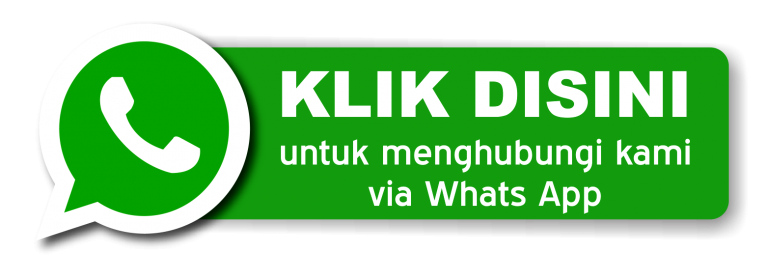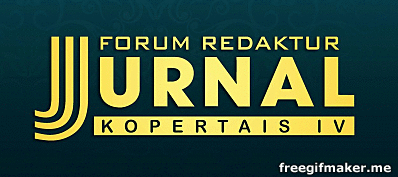Islamic Education in The Digital Era: Overcoming Barriers and Maximizing Opportunities

DOI:
https://doi.org/10.32665/alulya.v10i2.4444Keywords:
Islamic education, digital transformation, epistemology, Islamization of science, ijtihadAbstract
This article examines the impact of digital transformation and scientific development on Islamic thought, education, and society. It explores how the stagnation of rational inquiry following the post-Ibn Rushd era, compounded by the closure of ijtihad and the dominance of dogmatic interpretations, has weakened the intellectual capacity of Muslims to respond to contemporary global challenges. Drawing from theories of scientific paradigm shifts (Kuhn), future shock (Toffler), and knowledge society (Kumar), the study argues that Islamic education must adapt by integrating digital technologies, reformulating epistemology, and reviving the Islamization of science. It highlights both opportunities and threats in the digital era, including the rise of online da'wah and virtual Islamic learning, as well as the misuse of digital media for radicalism and pornography. The paper concludes that reimagining Islamic knowledge systems—through critical, ethical, and innovative engagement with digital tools—is essential to ensure Islam’s relevance in the 21st century. Strategic recommendations are offered to realign Islamic education with the demands of the digital age, while preserving its core spiritual values.
Downloads
References
Al-Attas, S. M. N. (1995). Prolegomena to the Metaphysics of Islam: An Exposition of the Fundamental Elements of the Worldview of Islam. International Institute of Islamic Thought and Civilization (ISTAC).
Al-Attas, S. N. (1980). The Concept of Education in Islam: A Framework for an Islamic Philosophy of Education. ABIM.
Al-Fadhli, Salah M., Hasan A. Abbas, Ali A. Dashti, and H. H. (2014). The Ethical Attitudes Toward Internet Pornography in Islamic Societies: Kuwait as a Case Study. Journal of Information Ethics (2014) 23(2) 60, 23(2), 60–70.
Al-Faruqi, I. R. (1981). Toward Islamization of Knowledge. International Institute of Islamic Thought.
Armas, A. (2005). Westernasisai dan Islamisasi Ilmu, dalam ISLAMIA, tahun I No 6, Juli-September 2005, 9. Islamia.
Assa’idi, S. (2021). Religious education curriculum in Indonesian Islamic University in the digital age: Incepting thematic Al-Quran of Fadlur Rahman. Journal of Social Studies Education Research, 12(3), 294–311.
Baiquni, A. (1999). Ahmad Baiquni, Al-Qur’an dan Ilmu Pengetahuan dan Teknologi. Dana Bakhti Prima Yasa.
Bakar, O., & Bakar, O. (1998). Classification of knowledge in Islam: A study in Islamic philosophies of science. Islamic Texts Society.
Barr, A. & A. H.-M. (2017). ISIL’s Execution Videos: Audience Segmentation and Terrorist Communication in the Digital Age, Studies in Conflict & Terrorism, DOI: 10.1080/1057610X.2017.1361282.
Butt, N. (2001). Sains dan Masyarakat Islam, terj. Masdar Hilmi. Pustaka Hidayah.
C. Verhaak dan R.Haryono Imam. (1989). Filsafat Ilmu Pengetahuan, telaah atas kerja ilmu-ilmu. PT. Gramedia.
Chawki, M. (2010). Islam in the digital age: Counselling and fatwas at the click of a mouse. Journal of International Commercial Law and Technology, 5(4), 165–180.
Cholifah, U. (2019). Islam in the Digital Age: The Application of Maqāsid As-Syari’Ah on Digital Zakat. Fikri : Jurnal Kajian Agama, Sosial Dan Budaya, 4(1), 101–112. https://doi.org/10.25217/jf.v4i1.445
Eljawad MA, Se’eda H, Ghozy S, El-Qushayri AE, Elsherif A, Elkassar AH, Atta-Allah MH, Ibrahim W, E. M. (2021). Pornography Use Prevalence and Associated Factors in Arab Countries: A Multinational Cross-Sectional Study of Individuals. The Journal of Sexual Medicine, 18, 539–548.
Fariza, W. A. N., & Wan, A. (2012). Alvin Toffler: Knowledge, Technology and Alvin Toffler: A Biographical Sketch. International Journal of Islamic Thought, 1(June), 54–61.
George, A. L., & Bennett, A. (2005). Case studies and theory development in the social sciences. The MIT Press.
Gingerich, E. (2020). Book Review: Future Shock 2.0. Journal of Values-Based Leadership, 13(2), 0–4. https://doi.org/10.22543/0733.132.1335
Hakim, F., & W, D. M. A. P. (2025). Rekonstruksi kurikulum pai di ruang digital: Strategi pembelajaran berbasis teknologi untuk generasi digital. An-Nadwah, 01(01), 50–64.
Hamdi, R., S. U., Hikmah, N., Syabrina, M., Sulistyowati, & Mualimin. (2024). Developing Digital-Based Islamic Religious Education Teaching Modules on the Subject Matter of Duha Prayer in Elementary Schools. Jurnal Pendidikan Agama Islam, 21(1), 131–146. https://doi.org/10.14421/jpai.v21i1.7520
Huda, K. (2016). Problematika Madrasah Dalam Meningkatkan Mutu Pendidikan Islam. Jurnal Dinamika Penelitian, 16(2). https://doi.org/10.21274/dinamika.2016.16.2.309-336
Jenie, U. A. (1998). Paradigma dan Religiositas Iptek, dalam Rekonstruksi Pendidikan dan Tradisi Pesantren, Religiusitas Iptek. Pustaka Pelajar.
Jujun Suriasumantri. (2001). Tentang Hakekat Ilmu: Sebuah Pengantar Redaksi.” Dalam Jujun (ed.,) Ilmu Dalam Perspektif (Yayasan Obor Indonesia: Jakarta, 2001), 9.
Kholdun, I. (2011). Muqaddimah, terjemahan masturi Irham, Lc dan Malik Supar, Lc. Pustaka Al-Kautsar.
Leaman, O. (2001). Pengantar filsafat Islam, sebuah pendekatan tematis, terj. Musa Kazhim Dan Arif Mulyadi. Mizan.
Lubis, M. A. (2018). Negara, Universiti Kebangsaan Malaysia, Malaysia. 2(September), 92–100.
Marwantika, A. I. (2022). Analisis Bibliometrik Tren Kajian Dakwah Pada Masa Pandemi COVID-19 di Indonesia. Journal of Da’wah, 1(1), 24–41. https://doi.org/10.32939/jd.v1i1.1274
Mastuhu. (2004). Menata Ulang Sistem Pendidikan Nasional Abad 21. UII Press.
Mas’ud, A. (2000). Dikotomi Ilmu Agama dan Non Agama, Kajian Sosio-Historis Pendidikan Islam. IAIN Wali Songo.
Muhammad al-Ghazali, S. (2008). Syaikh Muhammad al-Ghazali, Al-Qur’an Kitab Zaman Kita. Mizan.
Nakosten, M. (1996). Kontribusi Islam atas Dunia intlektual Barat, Deskripsi Analisis abad keemasan Islam, terj. Joko s. Kahhar. Risalah Gusti.
Nur Latifah, E., & Tamam, B. (2024). Modernizing Islamic Religious Education: Bridging tradition and 21st-Century skills through curriculum and technology integration. International Conference on Education, Society, and Humanity, 02(02), 219–224.
Nurdin, S. (2000). Sains menurut Perspektif Islam. Dwi Rama.
Piliang, Y. A. (2004). Dunia yang Dilipat, Tamasya Melampaui Batas-Batas Kebudayaan. Jalasutra.
Purwanto, H., & Nuha, A. A. (2020). Post Dakwah di Era Cyber Culture. DAKWATUNA: Jurnal Dakwah Dan Komunikasi Islam, 6(2), 1–28.
Raḥmān, F. (2002). Islam & modernity: Transformation of an intellectual tradition (8. impr). Univ. of Chicago Press.
Risdiana, A., Ramadhan, R. B., & Nawawi, I. (2020). Transformasi Dakwah Berbasis “Kitab Kuning” Ke Platform Digital. Jurnal Lektur Keagamaan, 18(1), 1–28. https://doi.org/10.31291/jlk.v18i1.682
Saleh, S. P., Hafied Cangara, S. Sabreen, S. A. (2022). Digital Da’wah Transformation: Cultural And Methodological Change Of Islamic Communication In The Current Digital Age. International Journal of Multidisciplinary Research and Analysis, 05(08), 2033–2043. https://doi.org/10.47191/ijmra/v5-i8-18
Sardar, Z. (1985). Islamic futures: The shape of ideas to come (1. publ). Mansell.
Sardar, Z. (2006). Reading the Qur’an: The Contemporary Relevance of the Sacred Text of Islam. Oxford University Press.
Sardar, Ziauddin. (ed. ). (2000). Merombak Pola Pikir Intelektual Muslim. Pustaka Pelajar.
Schmit, E. dan J. C. (2014). Era Baru Digital, Cakrawala Baru Negara, Bisnis dan Hidup Kita, terj. Selvina Hanna. Gramedia.
Sismondo, S. (2009). An Introduction to Science and Technology Studies, 2nd Edition. Wiley-Blackwell.
Tierney, S. (2016). Accommodating Cultural Diversity. In Accommodating Cultural Diversity. https://doi.org/10.4324/9781315565477
Titus, H. H. (1984). Persoalan-persoalan Filsafat, terj. H.M. Rasjidi. Bulan Bintang.
Toffler, A. (1971). Future Shock. A Bantam Book.
Yazdi, M. T. M. (2010). Buku Daras Filsafat Islam, terj. Musa Kazhim dan Saleh Baqir. Mizan.
Zamiri, M., & Esmaeili, A. (2024). Methods and Technologies for Supporting Knowledge Sharing within Learning Communities: A Systematic Literature Review. Administrative Sciences, 14(1). https://doi.org/10.3390/admsci14010017
Zed, M. (2014). Metodologi penelitian kepustakaan. Yayasan Pustaka Obor Indonesia.
Downloads
Published
Issue
Section
License
Copyright (c) 2025 Fathurrahman Muhtar; Abdul Latif Manan

This work is licensed under a Creative Commons Attribution 4.0 International License.
 PDF Download: 185
PDF Download: 185












